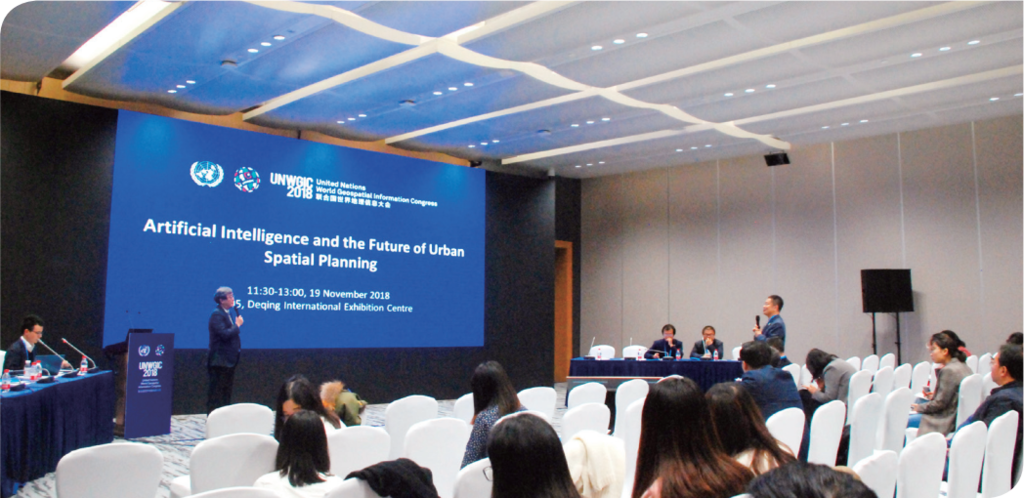The 2018 International Symposium of IKCEST Intelligent City Knowledge Service System, co-sponsored by the IKCEST and Tongji University, was held in Deqing, Zhejiang province on November 19, 2018.
The meeting, themed “AI and Urban Space Planning of Tomorrow”, took place as part of the inaugural United Nations World Geospatial Information Congress. At the meeting, top urban planning and AI experts, scholars and industry practitioners discussed on related topics including intelligent city planning and smart geographical information, shared their ideas and views, and envisioned an exciting future of smart planning based on the marriage of urban space planning and AI technology. The meeting was attended, among others, by Wu Zhiqiang, Member of the Chinese Academy of Engineering (CAE) and Vice President of Tongji University, Otthein Herzog, Fellow of German Academy of Science and Engineering, Cao Buyang, Professor at College of Architecture and Urban Planning, Tongji University, Xu Liyan, Assistant Professor at College of Architecture and Landscape, Peking University, Huang Qian, Chief Engineer at China Highway Engineering Consulting Corporation (CHECC), and Liu Chang, Director of Division of International Cooperation of the IKCEST.
The meeting opened with an address by Liu Chang on behalf of the CAE and the IKCEST, in which she introduced the work of the CAE and the IKCEST in knowledge sharing in geospatial information and engineering, including the background of the IKCEST, the development of the IKCEST general platform and sub-platforms, international training and support of UNESCO actions.
After that, Cao Buyang introduced cases of using machine learning to analyze and predict spatial and statistical data of urban built-up areas and discover patterns of urban development.
Wu Zhiqiang introduced the research and practices of his team in smart data capture, smart configuration of urban functions, and smart design of urban form, and demonstrated the exciting potential of the integration of AI technology and urban planning science in transforming urban research, urban management and urban life.
Otthein Herzog introduced the changes brought by AI to knowledge systems and urban planning and, based on the city tree research of CIUC, how AI can help discover the laws of urban development.
In his report, Xu Liyan also emphasized the important role played by technologies such as geographic information, AI and virtual reality in environmental sustainability, intelligent city and territory spatial planning, and gave a brief introduction to how these technologies can advance sustainable intelligent city development and management.
Finally, Huang Qian shared his views on how geographic information and AI would help address urban and social issues and expounded on the importance of geographic information in intelligent city development.
The symposium provided a platform for the relevant experts and practitioners in geographic information to have in-depth communication, share success stories and innovative approaches, and discuss the trends of geographic information technology and smart planning, and opened up new prospects for geographic information cooperation.


Original Text (This is the original text for your reference.)
The 2018 International Symposium of IKCEST Intelligent City Knowledge Service System, co-sponsored by the IKCEST and Tongji University, was held in Deqing, Zhejiang province on November 19, 2018.
The meeting, themed “AI and Urban Space Planning of Tomorrow”, took place as part of the inaugural United Nations World Geospatial Information Congress. At the meeting, top urban planning and AI experts, scholars and industry practitioners discussed on related topics including intelligent city planning and smart geographical information, shared their ideas and views, and envisioned an exciting future of smart planning based on the marriage of urban space planning and AI technology. The meeting was attended, among others, by Wu Zhiqiang, Member of the Chinese Academy of Engineering (CAE) and Vice President of Tongji University, Otthein Herzog, Fellow of German Academy of Science and Engineering, Cao Buyang, Professor at College of Architecture and Urban Planning, Tongji University, Xu Liyan, Assistant Professor at College of Architecture and Landscape, Peking University, Huang Qian, Chief Engineer at China Highway Engineering Consulting Corporation (CHECC), and Liu Chang, Director of Division of International Cooperation of the IKCEST.
The meeting opened with an address by Liu Chang on behalf of the CAE and the IKCEST, in which she introduced the work of the CAE and the IKCEST in knowledge sharing in geospatial information and engineering, including the background of the IKCEST, the development of the IKCEST general platform and sub-platforms, international training and support of UNESCO actions.
After that, Cao Buyang introduced cases of using machine learning to analyze and predict spatial and statistical data of urban built-up areas and discover patterns of urban development.
Wu Zhiqiang introduced the research and practices of his team in smart data capture, smart configuration of urban functions, and smart design of urban form, and demonstrated the exciting potential of the integration of AI technology and urban planning science in transforming urban research, urban management and urban life.
Otthein Herzog introduced the changes brought by AI to knowledge systems and urban planning and, based on the city tree research of CIUC, how AI can help discover the laws of urban development.
In his report, Xu Liyan also emphasized the important role played by technologies such as geographic information, AI and virtual reality in environmental sustainability, intelligent city and territory spatial planning, and gave a brief introduction to how these technologies can advance sustainable intelligent city development and management.
Finally, Huang Qian shared his views on how geographic information and AI would help address urban and social issues and expounded on the importance of geographic information in intelligent city development.
The symposium provided a platform for the relevant experts and practitioners in geographic information to have in-depth communication, share success stories and innovative approaches, and discuss the trends of geographic information technology and smart planning, and opened up new prospects for geographic information cooperation.












 User Center
User Center My Training Class
My Training Class Feedback
Feedback












Comments
Something to say?
Login or Sign up for free